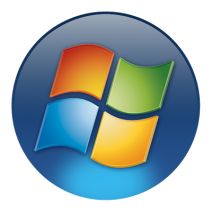Have any question?
Text or Call (954) 573-1300
Text or Call (954) 573-1300
The ransomware machine keeps moving forward, despite significant opposition. In particular, the ransomware tag-team duo of Petya and Mischa have steamrolled most attempts to block them from accessing critical systems, always finding ways to outsmart security professionals. Now, these ransomwares have adopted a Ransomware as a Service model, which has made significant changes to the way that this ransomware is distributed.
In the latest round of security patches released by Microsoft, 27 vulnerabilities were fixed. Affected software includes major titles like Windows, Microsoft Office, Internet Explorer, and the new Edge browser. It’s imperative that you apply these security patches as soon as you can, or else your system will be exposed to some serious threats.
Users of Acer’s online store between May 12th, 2015, and April 28th, 2016, may be in for a rude awakening. Acer may be attempting to contact you to relay that your credit card’s credentials have been lifted by hackers. The breach in question resulted in 34,500 customers having their credentials stolen, including the user’s name, address, credit card number, expiration date, and security code.
In light of a recent zero-day vulnerability discovered with Adobe Flash, along with the wide adoption of the alternative rich media player HTML5, Google has put into motion plans to stop supporting Flash for its popular web browser, Google Chrome. By all accounts, this move may be the final nail in the coffin for the Internet stalwart, which means that your business should cease using it.
 You’ve heard about a ton of high-profile hacks over the past few years, and it’s important to note that these numbers will only continue to climb. A recent incident involving Time Warner Cable, a large ISP in the United States, shows the world that even huge companies that specialize in providing Internet for users can suffer the embarrassment of a data breach.
You’ve heard about a ton of high-profile hacks over the past few years, and it’s important to note that these numbers will only continue to climb. A recent incident involving Time Warner Cable, a large ISP in the United States, shows the world that even huge companies that specialize in providing Internet for users can suffer the embarrassment of a data breach.
 With many organizations heavily relying on mobile computing, malicious operators have begun targeting the “low-lying fruit” of a business’ IT infrastructure, which is often a company’s mobile devices. Kemoge, a malicious adware strain designed to corrupt Android mobile operating systems, is the latest mobile threat that your business needs to protect itself against.
With many organizations heavily relying on mobile computing, malicious operators have begun targeting the “low-lying fruit” of a business’ IT infrastructure, which is often a company’s mobile devices. Kemoge, a malicious adware strain designed to corrupt Android mobile operating systems, is the latest mobile threat that your business needs to protect itself against.
 The latest threats can put a damper on your business plan and put your company at risk. Therefore, it's only natural to protect yourself from them. This new threat in particular, Cryptowall 2.0, has the potential to do plenty of heavy-duty damage to your business's network, if given the opportunity.
The latest threats can put a damper on your business plan and put your company at risk. Therefore, it's only natural to protect yourself from them. This new threat in particular, Cryptowall 2.0, has the potential to do plenty of heavy-duty damage to your business's network, if given the opportunity.
 A new malicious threat in the technical marketplace has just been discovered. The bug, dubbed the Bash bug, or "shellshock," is on the loose for users of Unix-based operating systems, like Linux or Mac OS X. It allows the execution of arbitrary code on affected systems, and could potentially be very dangerous for your business. In fact, CNet is calling it "bigger than Heartbleed."
A new malicious threat in the technical marketplace has just been discovered. The bug, dubbed the Bash bug, or "shellshock," is on the loose for users of Unix-based operating systems, like Linux or Mac OS X. It allows the execution of arbitrary code on affected systems, and could potentially be very dangerous for your business. In fact, CNet is calling it "bigger than Heartbleed."
 Last year, Microsoft pulled the plug on Windows XP’s support. Now, one year later, Windows Server 2003 is scheduled to meet its demise. If your servers are still running Windows Server 2003 as their operating system, it’s important to upgrade before the end of support date of July 14th. Otherwise, you could be running a server operating system without necessary patches and security updates.
Last year, Microsoft pulled the plug on Windows XP’s support. Now, one year later, Windows Server 2003 is scheduled to meet its demise. If your servers are still running Windows Server 2003 as their operating system, it’s important to upgrade before the end of support date of July 14th. Otherwise, you could be running a server operating system without necessary patches and security updates.
 One would assume that software preinstalled on a new PC is secure and has been properly vetted by the manufacturer. This is the case 99 percent of the time, but an exception has recently been discovered with the Superfish app, which came installed on new Lenovo computers sold between September and December of 2014. How can you protect your PC from this fishy security threat?
One would assume that software preinstalled on a new PC is secure and has been properly vetted by the manufacturer. This is the case 99 percent of the time, but an exception has recently been discovered with the Superfish app, which came installed on new Lenovo computers sold between September and December of 2014. How can you protect your PC from this fishy security threat?
Learn more about what L7 Solutions can do for your business.
L7 Solutions
7890 Peters Road Building G102,
Plantation, Florida 33324